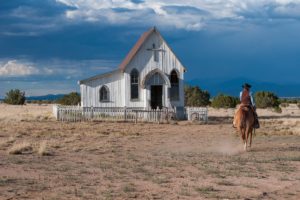Euthanasia
Christians know that life is a gift. Christians believe that the moral and ecclesiastically legal cases for both abortion and euthanasia rise and fall together. According to God’s law, life is entrusted to us by God, and it is not up to the individual to decide when to end one’s life. With the gift of life comes an important responsibility to honor God and wait patiently for Him, not us, to decide when our journey on earth ends. Deuteronomy 32:39 tells us that matters of life and death are the providence of God: “It is I, your God, who brings both death and life” (paraphrased). God has a plan for both our lives and our deaths, although man often exercises free will to interfere with His divine plan.
Euthanasia is an effort by man to intervene in God’s plan for death. Euthanasia is premature death by another man’s hand and, as such, interferes with the plan for life and death that God has in store for each person. As such, true Christians respect life and oppose all attacks on life, including euthanasia and physician-assisted suicide. Euthanasia is an action or omission, which, of itself and by intention, causes death with the purpose of eliminating all suffering. Euthanasia is not a personal right that Christian members of His glorious church are “free to choose.” Men are stewards, not owners, of the life God has entrusted to us. It is not ours to dispose of. Euthanasia is a grave violation of the law of God, since it is deliberate and morally unacceptable killing of a human person.
Because euthanasia is a sinful act used for the purpose of eliminating suffering, it is vital to understand the doctrine of Christian suffering. The atonement of Christ on the cross was substitutional and ultimately abolished sin, its sickness, its poverty, its premature death and the ultimate consequence of it which is eternal death. The atonement was accomplished by Christ’s suffering on the cross, so suffering is a sacred issue to be carefully handled, not necessarily always avoided or rejected. Christ’s suffering was substitutional in that we do not achieve our own redemption through our own suffering in these same dimensions of sin, its sickness, its poverty, its premature death, or its eternal death. Christ suffered for us and in our place to purchase our redemption, according to Isaiah 53:6, Isaiah 53:12, Romans 3:25, II Corinthians 5:21, II Corinthians 8:9, Galatians 3:13, and Hebrews 10:1-4. We cannot suffer in any way to purchase our own redemption.
Said another way, in response to His work of atonement upon Calvary, we do not accept sin, its sickness, its poverty, its premature death, or its eternal death, but rather respond to His great work by resisting sin, resisting sickness, resisting poverty, and resisting premature death by faith, and in honor of Christ’s substitutionary work on the cross. This reality, however, does not preclude the occasions when particular sufferings outside the scope of His substitutionary work are not to be resisted, but rather welcomed by those redeemed through His substitutionary work on the cross. We believe that it is our calling and duty to take on these “sufferings of Christ” that He particularly endured for approximately 33 years prior to being raised upon the cross for His exclusive work. II Timothy 3:12-13 states: “Yea, and all that will live godly in Christ Jesus shall suffer persecution. But evil men and seducers shall wax worse and worse, deceiving, and being deceived.” Two things are made very clear:
1. All who live godly lives in Christ Jesus will suffer through persecution.
2. Those who do not live godly lives will grow more and more evil.
I Peter 2:21 states:
“For even hereunto were ye called: because Christ also suffered for us, leaving us an example, that ye should follow His steps.”
Peter explains that Christ suffered in ways which were not necessarily substitutionary, and in those points, we are to “follow His steps.” The sufferings we are told by Peter to endure are not self-inflicted through acts of disobedience, which lead to sin, its poverty, its sickness, and its eternal death, but rather they are brought upon us by others. These are the sufferings we share with Christ. We will be persecuted for our obedience to the Father of Heaven, just as He was. These are the same sufferings He endured, not upon Calvary, but before He went to Calvary, during His 3½ years of preaching ministry.
Hebrews 5:7-8 states:
“Who in the days of his flesh, when he had offered up prayers and supplications with strong crying and tears unto him that was able to save him from death, and was heard in that he feared; Though he were a Son, yet learned he obedience by the things which he suffered.”
The sufferings of Christ we are commanded to welcome are primarily associated with persecution leveled against a believer for their faithful witness, but also include those sufferings that can be associated with natural death, which is the recompense of our sin, for “…as it is appointed unto men once to die, but after this the judgment,” according to Hebrews 9:27. Death may be peaceful, but it may also include physical and emotional sufferings. When those who suffer or linger in death do not understand the circumstance they face, they are commanded by the Lord to “take up your cross” and follow Him through the door of death, and into the joy of resurrection life eternal, according to Matthew 16:24 and Romans 8:17.
Adam began his life inside the riches of an inheritance. Adam began in glory with everything, yet ended in despair with great suffering. When Adam sinned and became self-aware (“I’m naked!”), he lost his inheritance and became a slave and a debtor. As a son or daughter of Adam we were all “once-born” without any inheritance—naked, self-aware, selfish, and with a debt we could never pay. Meanwhile, Christ left His glory and entered the world like us…naked. Christ paid our debt on the cross…naked. Christ, the Second Adam, has made a way for all men and women to be “twice-born,” a son or daughter of God (no longer a son or daughter of Adam), a co-heir with Christ restored to the inheritance Adam tossed aside.
In summary:
Adam began in the glory of inheritance and ended in suffering. Christ’s road begins in suffering and ends in a glorious inheritance. We are called, even in the rattles of our own natural deaths, to follow Christ through repentance and sufferings and into a glorious inheritance that awaits. Euthanasia is a sinful act that refuses to accept God’s authority in the appointments of life and death, according to Hebrews 9:27.
Romans 8:17 (NIV) states:
“Now if we are children, then we are heirs—heirs of God and co-heirs with Christ, if indeed we share in His sufferings in order that we may also share in his glory.”
This does not necessarily mean that Christian members of His church are required to heroically fight death by employing every available medical procedure to oppose it when it is clearly imminent and inevitable and the dying has exhausted the possibility for reasonable divine intervention, so long as the normal care to the sick person in similar cases is not interrupted. Providing a Christian member with nutrition and hydration must be considered “normal care.” To enable another to die by starvation and/or dehydration, rather than the illness or medical condition which caused the person to be hospitalized in the first place is a sinful act against the sovereignty of the Lord God Almighty. The law of God states in Genesis 9:5:
“From man in regard to his fellow man, I will demand an accounting for human life” (paraphrased).
Jesus, the Head of the Church, said in Mark 9:41:
“For whosoever shall give you a cup of water to drink in my name, because you belong to Christ, verily I say unto you, he shall not lose his reward.”
Jesus, the Head of the Church, prayed in Matthew 6:11:
“Give us this day our daily bread.”
The writer of Proverbs 31:6 declares:
“Give strong drink unto him that is ready to perish, and wine unto those that be of heavy hearts.”
Therefore, providing basic sustenance—food and water and medicinal comforts—to our fellow man, particularly our family members, is our fundamental Christian obligation as members of His Body on the earth.
It is in the Father of Heaven’s providence to grant both life and death; it is within our human obligation to provide food and water to those who require them in between those two points of time until God determines otherwise. It is the position of Cornerstone World Outreach that unless a patient is so near death that they cannot assimilate food or water by any means natural or artificial, that their life must be safeguarded by the continuance of both. As the “cup” is cited by Christ as a vessel to deliver necessary water to the thirsty, so too must all technological advances used to deliver water and food be continued so long as the patient’s body can assimilate them. Until the human body reaches the point where it will not assimilate food and water by any means, the patient must not be declared legitimately “terminal” by those charged with their protection.
Christians are encouraged by PeaceMakers Institute to protect themselves from “boilerplate” hospital forms and so-called “living wills” that deliberately insert a pagan culture of death couched in softened language. These documents empower medical providers to quietly euthanize patients by dishonoring the law of God and omitting normal care for patients as previously described. Verbal engineering of the terms “terminal,” “artificial means,” “heroic measures,” “quality of life,” and “imminent death” are commonly used to grant caregivers the man-made (not God-authorized) powers to euthanize old and/or infirm patients, rather than caring for them. These terms do not provide a complete list of deceptive language the euthanasia practitioners use to disguise the horrific realities of euthanasia. In their unrelenting effort to bring the Culture of Death into the mainstream, they entice the uninformed to accept the premature killing of innocent life by using feel-good language that disguises the euthanasia lobby’s objective of what they describe as generational cleansing.
Christians are required by Scripture to never sign a living will that is not staunchly pro-life. Living wills that have been signed in the past, through ignorance, should be immediately destroyed in all forms paper and digital. Members are required by Scripture to reject all declarations which have the above described euthanasia facilitating terminology. Members should include in their estate plans a Pro-Life Health Care Declaration that protects them against euthanasia and directs their health care providers to respect their pro-life Christian values when providing them with medical care. As a service to our members, a Pro-Life Health Care Declaration template is available through the church office by request.
The law of God forbids the killing of innocent life according to Exodus 20:13. Therefore, the church of Jesus Christ, and its subordinate extension through Christ, by the establishment of PeaceMakers Institute, stands in both prayerful intercession for and legal interposition against corrupt human powers that defy God’s authority in this matter.
Tag:euthanasia, hospitals, life, seniors, sick, social issues





